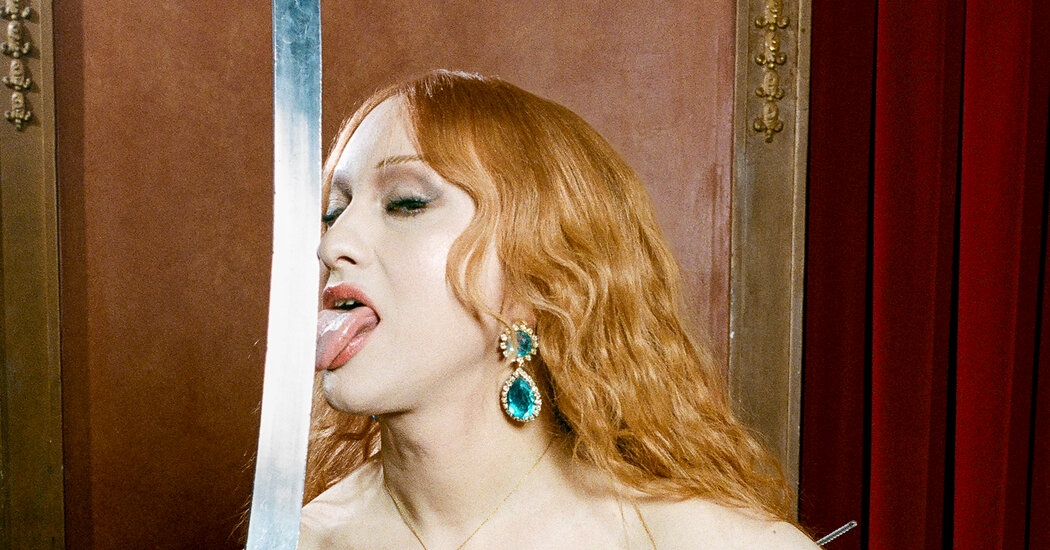What did you learn from being in “Chicago”?
I noticed that with the actors, no two performances were identical yet the intention was always the same. I realized it’s not about learning the perfect way to deliver the line and then delivering it that way every time without fail — it was about learning the true intention behind the scene and then just having the conversation with the actors. Once I started doing that, I started getting to that nirvana place where I was thinking the thoughts of the character. You’re sitting there actually thinking, “Oh my gosh, I can’t believe Roxie Hart just said that.”
Were you surprised to get the call for Audrey?
I’ve always thought I could play Audrey amazingly, but I never thought anyone would even look at me for her, so I had this dream of playing Audrey II, the plant. I wanted to play its voice until it was big enough, and then it blooms into a personification of the plant and I would be like Poison Ivy. So my agent calls and says they wanted me to audition for Audrey. I was like, “You mean Audrey II?” He goes, “No, Audrey.” And I was like, “Yeah, but the plant is named after her so they want me to audition for Audrey II.” And he goes, “No, Jinkx, they want you to audition for Audrey. Not the plant, the human being.” I was shocked and stunned.
What was it like landing this dream role?
Being cast as Audrey was what gave me permission to finally begin my medical transition. It was like, “I think the world’s ready to see you as an actress. They don’t need to see you as a drag queen, they don’t need you to perform maleness for them anymore — they see you as the actress you wanted to be.” The world is at a place where they’re ready to see me, and that’s thanks to people like Peppermint, Angelica Ross, Laverne Cox, Varla Jean Merman — all of these people who have been playing roles that weren’t expected for them to play, and doing it well and showing everyone we’re just actors.
So in a way a performance inspired a decision that meant ending a performance?
Drag gave a place for my femininity to live, and for a long time it was good enough. When I came out as nonbinary, it was because I realized I didn’t want to keep performing maleness. But being nonbinary I was still setting these rules on myself, like I was adamant about androgyny, about not being too masculine and too feminine. I’ve always been visibly queer and I was scared that taking it a step further was just going to make my life miserable.
It doesn’t look like it did.
Getting cast as Audrey was kind of like, “Oh, I’m an actress.” I started wearing dresses. I started walking my walk every day — there is something in my mind like, “This is the walk Audrey would do.” It was slurs being yelled at me and sometimes it was catcalls, sometimes it was lecherous looks. But it wasn’t any different from before I transitioned. Like, whatever, I’ve been called slurs my whole life. But I am now this person I imagined in my head my whole life, that I thought was inaccessible to me. And I just [expletive] love every second of it.











